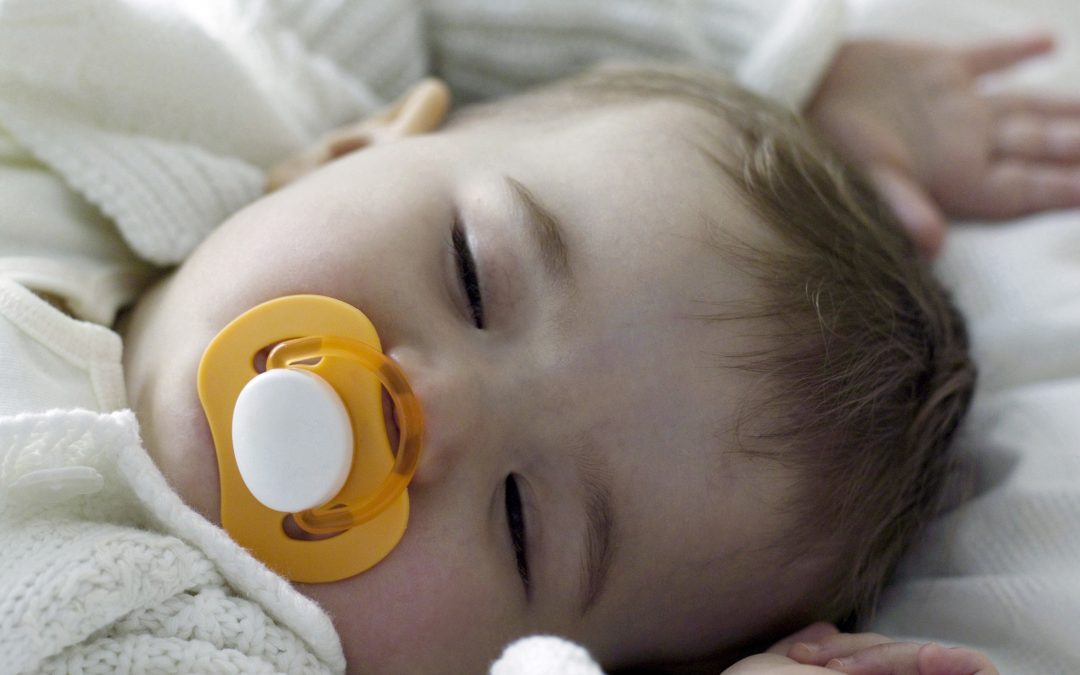Sucking is a natural reflex for babies and a normal part of their development. Sucking on hands, fingers or pacifiers can comfort and soothe babies during their first years of life. However, many Hendricks County parents often wonder if their baby’s sucking habits – especially on a pacifier – can cause “pacifier teeth” or dental problems for their child’s teeth or mouth.
What Exactly Are Pacifier Teeth?
As your child grows and their permanent teeth come in, if they continue to suck on a pacifier, their teeth and jaws will develop around the pacifier. This can cause problems with the proper growth of their mouth and the alignment of their teeth. Signs of pacifier teeth and mouth problems include:
- Upper front teeth that slant out.
- Bottom front teeth that tilt in.
- Crooked teeth.
- Misalignment of the upper and lower jaws.
- Teeth that don’t meet when the mouth is closed.
- A narrowing from side to side of the roof of the mouth.
How to Break the Pacifier Habit
Most Hendricks County children will stop sucking on a pacifier on their own between the ages of two and four. However, pacifier use during these ages may cause the teeth to begin to slant. Pacifier use after the age of four, when your child’s adult teeth begin to form, can lead to long-term dental problems like pacifier teeth.
Here are seven tips from Danville Family Dentistry to help your child break the pacifier habit:
- Make sure everyone (parents, daycare workers, grandparents, etc.) is involved in your plans to wean your child off of their pacifier. It won’t work if you’re not giving your child a pacifier, but grandma is.
- Going cold turkey often doesn’t work and will only cause stress for you and your child.
- Give your child their pacifier only at nap time or bedtime. Remove the pacifier from your child’s sight during all other times. After a few weeks, stop giving the pacifier to them at nap time as well. Then slowly wean them off of their pacifier at bedtime.
- Distract your child with another item or activity if they ask for their pacifier.
- Comfort your child by rocking them or giving them a blanket or favorite stuffed animal if they fuss and cry.
- Make their pacifier unappealing to suck on by dipping it in lemon juice.
- Offer your child a tooth-friendly prize for every day that they go pacifier free.
Never scold or punish your child for using a pacifier. Encouragement and praise are the best methods of breaking your child’s pacifier habit.
By following these tips, your child can hopefully avoid having pacifier teeth as they grow older. If you need other tips on how to get your child to stop sucking on their pacifier, give the Hendricks County staff at Danville Family Dentistry a call at 317-745-4400.


 (317) 745-4400
(317) 745-4400 info@danvilledentalcare.com
info@danvilledentalcare.com